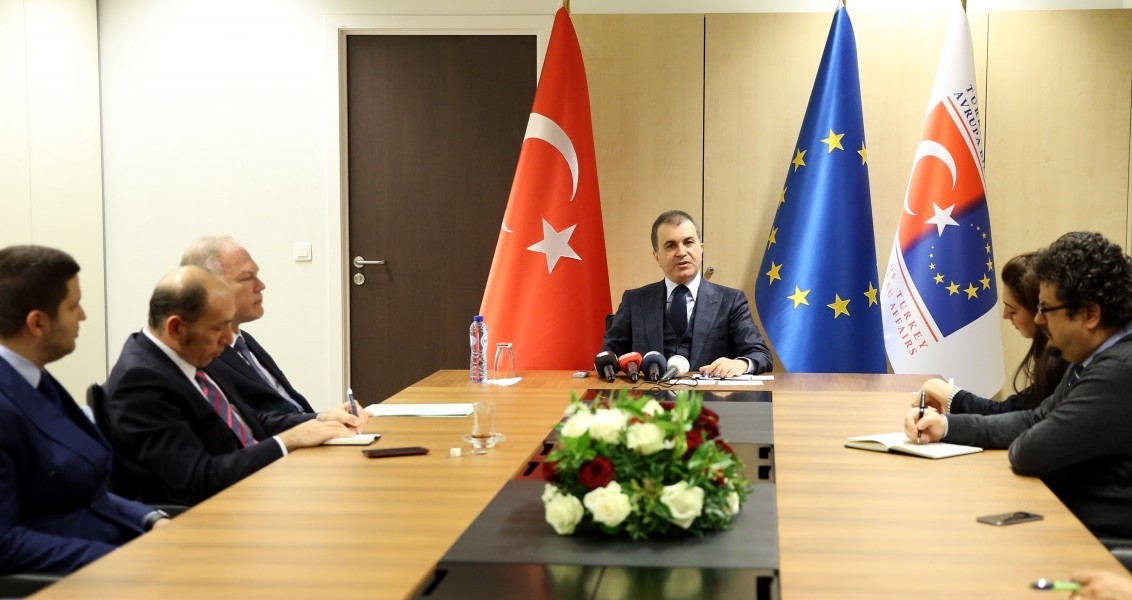Every day, another tense situation between Turkey and a European capital is in the media. So one naturally wonders where we are going with regard to our relations with Europe. Above all, the strained atmosphere is reciprocal.
It is no longer only about President Recep Tayyip Erdoğan’s criticism of European politicians for abetting terrorism, while the friendship with these politicians is quite dubious now. The dissidence to Erdoğan and Turkey has turned into a device for European domestic politics.
On one hand, we have got used to hearing the “serious concerns” of Austrian, Belgian and German politicians about where our democracy is going.
On the other hand, we must expect this trend to rise even more in Germany and France since these two countries are to undergo elections until September 2017. The presidential candidates from France’s center-right agree on the point that Turkey does not belong to Europe. Former Prime Minister Alain Juppé, who leads the opinion polls, recently said during a televised debate: “I’ve said a long time ago that Turkey does not belong in the European Union and the current evolution of the regime in Turkey makes this even more unlikely.”
The stance of the other candidate Nicolas Sarkozy has been clear for a long time. Stating that Turkey belongs to Asia, Sarkozy said “It’s time to put an end to all that, Turkey does not belong in the EU.”
We know that German Chancellor Angela Merkel agreed with Sarkozy on proposing a “privileged partnership” with Turkey at the time when Turkish-EU relations were better.
We have not heard new statements from Merkel since she knows Turkey is needed at this point to stop the refugee inflow heading to Europe from Syria and Iraq. But it is not difficult to estimate that her opinion has turned in a more negative direction.
It is obvious that the EU project, and even the idea of Europe, has been in crisis following the 2008 economic crisis, the rise of the European populist right-wing, and Brexit. And correspondingly, there is no one left who vocally supports Turkey’s full membership. On the contrary, reciprocal showdowns are being staged on the matter of stopping the negotiations.
It is time to place Turkish-EU relations in a new realm. The reason for the current situation is not the personal approaches of Erdoğan or European politicians. It has more structural reasons.
In my previous columns, I emphasized that the international system is on the threshold of a new transformation. While the distress in Western societies has reached a climax with the election of Donald Trump as the U.S. president, the “democratic shift” into radical right-wing tends to accelerate in Europe.
French Prime Minister Manuel Valls clearly expressed the dimensions of the threat posed by radical right-wing populism, which has exercised a major influence over European politics:
“Europe could die. Our responsibility is to listen to the anger of the people,” he said. There is a grave contradiction here. The failure of the politicians who have killed Europe.
In democracies, there is no other solution than listening to public anger. However, people are increasingly inclined toward nationalist politicians with extremist ideas.
So, the politicians believing in Europe cannot avert the slow death of the idea of the union.
Turkey’s relationship with the EU has to be redefined. The process will be open to harsh remarks and rational bargains in the short run. While Turkey will be pressing on European capitals the matter of support given to terrorist organizations including the PKK, the People’s Protection Units (YPG) and Gülenist Terror Group (FETÖ), the EU will be insistent on the subjects of immigrants and visa exemption.
But still, it can be assumed that joint economic and strategic interests will prevent the complete breakdown of relations.
In the long run, the process depends on how the EU will overcome its inner crisis. It is also significant that formulas are developed regarding Brexit.
Tabling similar options might be possible for Turkey.
But in order to avoid a complete breakdown of relations, we need to pull through the following year, which is going to be challenging…
[Daily Sabah, November 22, 2016]
In this article
- Foreign Policy
- Opinion
- 2008
- 2016
- 2017
- Alain Juppe
- Angela Merkel
- Austria
- Brexit
- Daily Sabah
- Donald Trump
- Elections
- Europe
- European Studies
- European Union (EU)
- Fethullah Gülen
- Fethullah Terrorist Organization (FETÖ)
- France
- German Chancellor
- Germany
- Gulen Community
- Gülen Movement
- Gülenist Terror Group
- Gülenist Terror Organization
- Hizmet Movement
- Iraq
- Kurdistan Workers' Party Terrorist Organization (PKK)
- Middle East
- Nicolas Sarkozy
- People's Protection Units (YPG)
- PKK - YPG - SDF - PYD - YPJ - SDG - HBDH - HPG - KCK - PJAK - TAK - YBŞ
- Prime Minister
- Recep Tayyip Erdoğan
- Syria
- Syrian Civil War
- Syrian Conflict
- Syrian Crisis
- Terror
- Terrorism
- The President of the Republic of Türkiye
- Turkish Foreign Policy
- Turkish President
- Türkiye-EU Relations
- Türkiye's Foreign Policy
- United States (US)
- US President
- Western World

